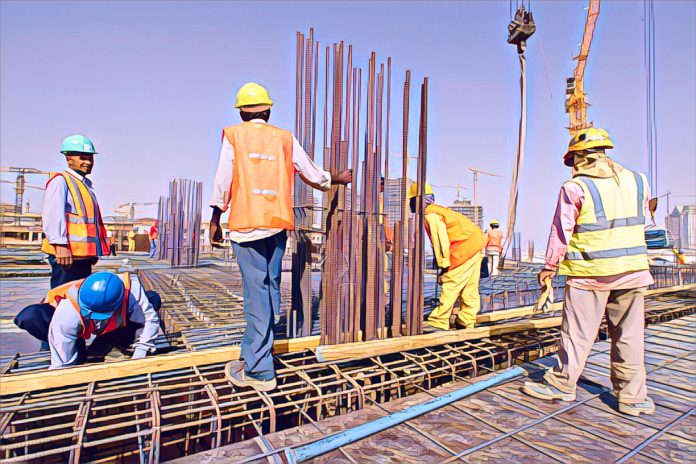KEY POINTS
- Escalating costs and financial constraints hinder project execution.
- A shortage of skilled labor and poor-quality materials compromise project integrity.
- Corruption, underdeveloped infrastructure, and regulatory challenges impede industry growth.
Nigeria’s construction sector, pivotal for national development, faces numerous obstacles that impede its progress and sustainability. Key challenges are mentioned below.
Shortage of skilled labor
The shortage of qualified professionals creates problems for project quality as well as work efficiency.
The lack of professionals results from insufficient educational programs and expert staff choosing overseas opportunities, which forces companies to employ unqualified workers.
Financial constraints
Insufficient access to funding prevents small and medium-sized contractors from taking on new work projects.
High interest rates coupled with strict credit requirements make the situation worse, by extending both project completion timelines and causing businesses to stop their projects.
Poor quality of products and services
Substandard materials along with deficient services damage project integrity.
The combination of weak quality control systems together with inadequate material selection leads to both material breakdowns and safety-related issues.
Corruption and fraud
Corruption pervades the sector, manifesting as bribery, kickbacks, and fraudulent practices.
Such unethical behaviors inflate project costs, compromise quality, and deter foreign investment, stalling industry advancement.
Escalating costs
The industry is grappling with rising expenses in materials, labor, and equipment.
The rising project execution expenses stem from inflation together with volatile currency values and the necessity of importing essential materials.
Underdeveloped infrastructure
The insufficient infrastructure such as inadequate road networks and volatile power supply creates obstacles that impact delivery operations.
These deficiencies hinder the transportation of materials and equipment, causing delays and escalating operational costs.
Regulatory challenges
Projects face difficulties during the approval process and compliance procedures because of difficult and inconsistent regulatory systems.
The bureaucracy along with inconsistent policies creates delays and higher expenses that scares investors away from establishing projects in this sector.
Safety concerns
Frequent accidents as well as fatalities occur when construction sites fail to maintain proper safety protocols.
Competency issues generated from limited resources and insufficient training results in dangerous working environments that diminish both staff moral as well as work efficiency.
Conclusion
The resolution of these challenges needs a wide-ranging plan that combines government support with stakeholder participation from the industry and educational system involvement.
The construction sector of Nigeria must implement security regulations and education investments as well as facility upgrades and safety regulation enforcement to achieve industrial change.



